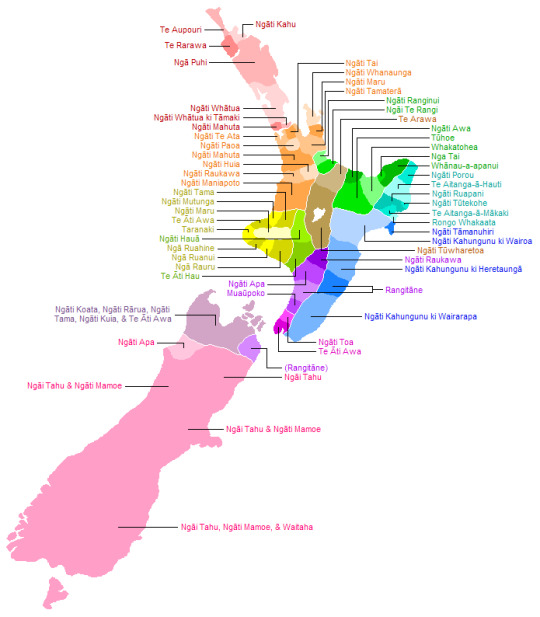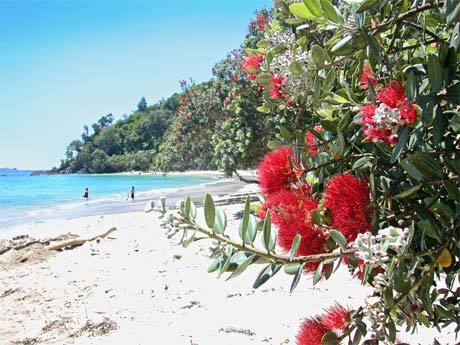This is a blog focused on the history of New Zealand and how the play The Pohutukawa tree by Bruce Mason relates to the historical events.
Don't wanna be here? Send us removal request.
Text
Queenie and Roys relationship (the innocent start) relating to Biculturalism.
0 notes
Text
The Mataira's and the Atkinson's friendly and respectable relationship.
The friendly and respectable relationship between the Mataira’s and the Atkinson’s symbolises the biculturalism in New Zealand between the Maori and the Pakeha. The casual drinks and chats on the porch between the families showed their ability to get on well, co-existing in the same environment normally.
0 notes
Text
Biculturalism is an evident theme of the play The Pohutukawa tree as the play revolves around the idea of two cultures living together and portrays how both the Māori and Pākehā act towards each other in the same environment.
0 notes
Text
Definition : Biculturalism - in sociology involves two originally distinct cultures in some form of co-existence.
0 notes
Conversation
A conversation between Aroha Mataira and Clive Atkinson.
Aroha : I have had Mr Sedgewick here. The Ngati-Ruakura have written to him from Tamatea. They want my land.
Atkinson : But they can't sell it without you.
Aroha : I know. But they talk of offering it to you. Asking you to buy it. Add it to your orchard.
Atkinson : Oh I won't do that, Mrs Mataira. I've got quite enough to keep me busy. Of course, if ever I sold the orchard...
Aroha : Sell? Sell! But you love Te Parenga!
Atkinson : Of course I do. But land, you know : you can't just cherish it. There's more to it than that. Land pays or it's a burden. I had to sell, well, this land of yours would be very valuable to me. Access, drainage : couldn't be better.
Aroha : This land is sacred to my people.
Atkinson : Yes, Yes. I know how you feel. Well don't worry. I'm not likely to sell with prices the way they are. But - I've meaning to say it - don't live in the past too much, will you now? Land must be used sometime, not just remembered. All things come to an end you know.
0 notes
Text
Land is an evident theme of the play The Pohutukawa tree because like all Māori, land is very important and sacred to Aroha. With disputes over the land between the Pākehā and other tribes, the characters in The Pohutukawa tree express their interesta in land throughout the play and what they think land is worth. (Aroha, Clive, etc.)
0 notes
Text
Definition : Land - The part of the earth's surface that is not covered by water, as opposed to the sea or the air.
0 notes
Quote
“Nice old tree, this. Watch the roots, though. They’re coming through here and there. Needs earthing up.”
Clive Atkinson - The Pohutukawa Tree
0 notes
Video
Queenie's views on urbanisation.
tumblr
Just me venting to myself !
10 notes
·
View notes
Text
There were many different views on urbanisation in New Zealand.
European’s who wanted to change and modernise New Zealand to resemble the countries they previously lived in.
The Maori who were fascinated by the new changes happening in New Zealand, such new cities and modern buildings.
The Maori who moved to the cities and accepted the changes in return for jobs, money and pleasure.
The Maori who didn’t agree with the changes and were outraged thinking the European’s were taking their land, not respecting the sacredness and history and creating unnecessary modern culture buildings and objects.
0 notes
Quote
“The urban migration of Māori has been described as the most rapid movement of any population. In 1945, 26% of the Māori population lived in the towns and cities. By 1956 this had increased to 35%. Mass migration continued into the early 1960s. The urban population grew to 62% in 1966, and reached nearly 80% by 1986. As a result, many rural villages were depopulated.”
http://www.teara.govt.nz/en/urban-maori/1
0 notes
Text
Definition : Urbanisation - the social process whereby cities grow and societies become more urban
0 notes
Conversation
Post world war II
-Europe was in an economic crisis.
-Europeans were looking for new places to go, new jobs and new homes.
-New Zealand was rich in resources, but according to the European's did not hold the numbers in labour to reach full working potential.
-The Pākehā wanted to change New Zealand to resembled their previous homes.
-The Māori wanted their land, traditions and heritage to be unchanged.
0 notes
Text
The Pohutukawa Tree was written as a source to understand Bicultural features and social and political issues in New Zealand.
0 notes

